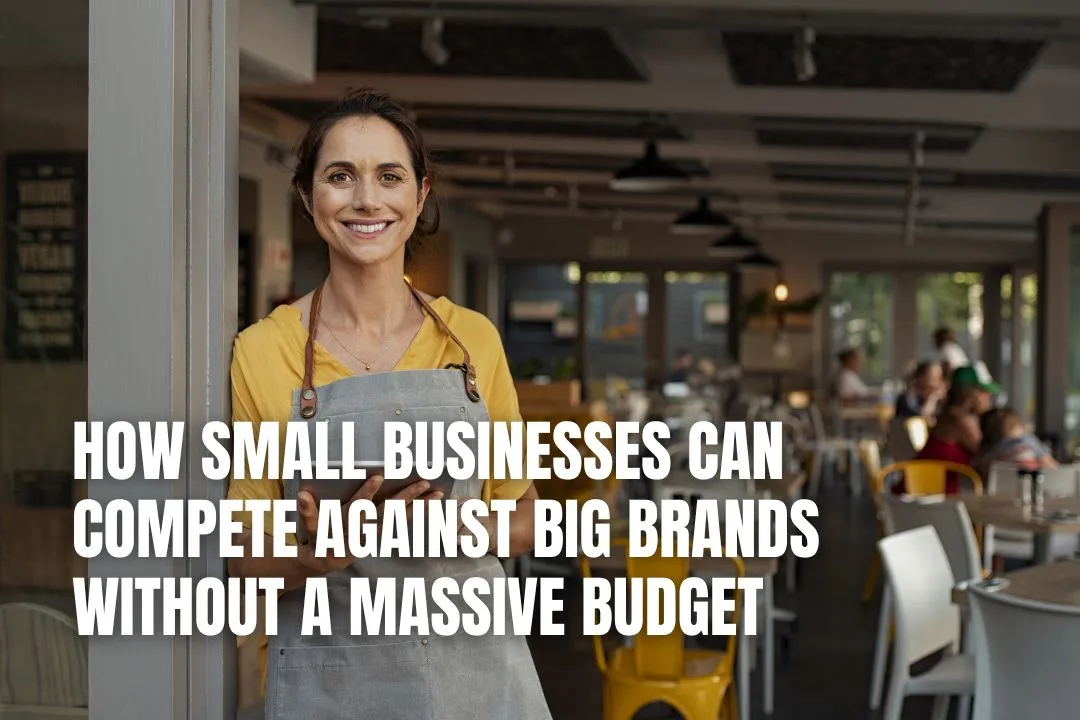
Editorial Disclaimer
This content is published for general information and editorial purposes only. It does not constitute financial, investment, or legal advice, nor should it be relied upon as such. Any mention of companies, platforms, or services does not imply endorsement or recommendation. We are not affiliated with, nor do we accept responsibility for, any third-party entities referenced. Financial markets and company circumstances can change rapidly. Readers should perform their own independent research and seek professional advice before making any financial or investment decisions.
Big brands can buy reach. But as a small business, you have the potential to own intent. You don’t need to win the internet; you just need to win a five-mile radius at the exact moment someone nearby wants what you sell. That’s your real advantage: proximity, speed, and proof.
This article shows how to turn local intent into steady revenue. You’ll see how disciplined execution and targeted local SEO services can keep demand flowing while you run the work.
Stop chasing broad keywords that feed giants. Build pages that make it obvious where you operate. Location-specific service pages, complete with directions, nearby landmarks, and on-the-ground proof, help you surface ahead of generic brand pages when someone near you is ready to buy.
Your digital footprint should make first contact easy on any screen. Think clean navigation, clear calls to call or book, and site speed that doesn’t stall on mobile. Treat your website as the storefront most people will see before they see you. Here’s how you turn that into concrete moves:
Pro tip: show live availability
Add a small “Next available” widget or calendar block on those location pages. When visitors can see an open slot today or tomorrow, they stop comparing and start booking.
Create pages and articles that answer buying questions with specifics, not slogans. A “roof repair in Glendale” page that shows before-and-after photos, explains price factors, and lists what happens in the first 24 hours will outrun a thousand words about “quality service.”
Publish neighbourhood guides for your top services, add FAQs pulled from real calls, and include a single, obvious next step.
Convert that strategy into actions:
Track whether that content is actually pulling its weight. Monitor organic traffic, watch which pages win searches and attention, and tune internal links so winners feed the rest of your funnel.
Pro tip: collect zero-party insights
After each job, ask “What almost stopped you from booking?” and add that exact objection (and your fix) to the page where hesitation happens.
National brands chase national headlines, but you can win in places they can’t touch. Get local credibility by asking suppliers, associations, event organisers, and neighbourhood blogs to link to your location or service page when they mention your work. If you’ve already made a strong local guide or case study, polish it up and pitch it to nearby publications rather than starting from scratch every time.
Showing up in your community also pays off when it’s time to convert. Sponsor a school fundraiser, co-host a street clean-up, or back up a youth sports team. Each gives you real stories and photos you can use on your site.
How to make it count:
Pro tip: build a micro-referral mesh
Create a small partner-perks page with 4-6 nearby businesses serving the same households, and each of you links to it. It feels like a community and functions like a high-trust local link equity.

Paid media works best when it’s sharp and focused. Run small, tightly targeted campaigns aimed at searches you can win now, while your organic pages climb. Use ad platform filters to narrow by location, intent, and timing so every click has a chance to turn into business. Start with a few bottom-funnel queries in your core areas, cap daily spend, and measure success by calls and bookings, not clicks.
Turn that into spend that works:
Pro tip: protect cash with negatives
Keep a running negative-keyword list (DIY, jobs, careers, free, cheap, competitor names, faraway cities) so you don’t waste budget on clicks that won’t turn into customers.
The biggest leak in small-business growth comes from inconsistency. Codify the repetitions that matter: publishing cadence, review replies, local outreach, page updates, and ad checks. Automating routine tasks and outsourcing specialist work creates room to keep promises, send quotes on time, return calls the same day, and schedule jobs without endless back-and-forth.
Lock it in with simple routines:
Pro tip: publish your response-time pledge
Show a small “Last 30 days: median first reply 6m 12s” badge. Visible reliability converts faster than a generic promise.
Think of the next three months as a repeating cycle, not a checklist. Start by launching your best location page and making it dead simple to book from any device. Next month, publish two local stories backed by real customer proof and score a local mention or backlink. In the third month, run a focused search campaign targeting the exact queries your new pages serve.
Here’s the cycle broken down:
Pro tip: small steady wins every month
Avoid big overhauls. Improve one high-impact page, one ad group, and one workflow bottleneck each cycle. Consistent tweaks beat one-off pushes every time.
The quickest wins come from right where your customers are. Keep the cycle tight: publish local content, earn mentions from nearby sources, respond quickly, make booking easy, and put those wins back into the pages and neighbourhoods that brought you success. If keeping up starts to slip, pass the tasks to specialists who live and breathe local SEO to keep things running smoothly.
Big brands can throw money at the market, but you can own your turf. When every step, from search to booking, feels personal and simple for your customer, even a small budget becomes a strong advantage. It’s about reliable pages, prompt replies, and winning one neighbourhood at a time.
Small businesses can compete by focusing on local search intent. Instead of targeting broad, highly competitive keywords, concentrate on location-specific terms and create dedicated service pages for each neighbourhood you serve. This allows you to appear for customers who are nearby and ready to buy.
Create content that solves immediate customer problems. Pages that clearly outline the problem, provide price ranges, and explain the next steps are highly effective. Also, turn frequently asked questions from phone calls into short, helpful articles on your website.
Yes, if they are used with precision. Instead of broad campaigns, run small, tightly targeted ads focused on a few high-intent, location-specific keywords. Track conversions like phone calls and bookings, not just clicks, to ensure your budget is spent effectively.
Build local reputation by getting involved. Sponsor a local team, partner with nearby non-competing businesses, and ask for mentions or links from local event organisers and community blogs. This creates authentic local authority that big brands cannot easily replicate.
Create simple systems and standard operating procedures (SOPs) for recurring tasks. Set a schedule for things like replying to reviews, publishing a new blog post, or checking ad performance. This routine helps maintain momentum without causing burnout.